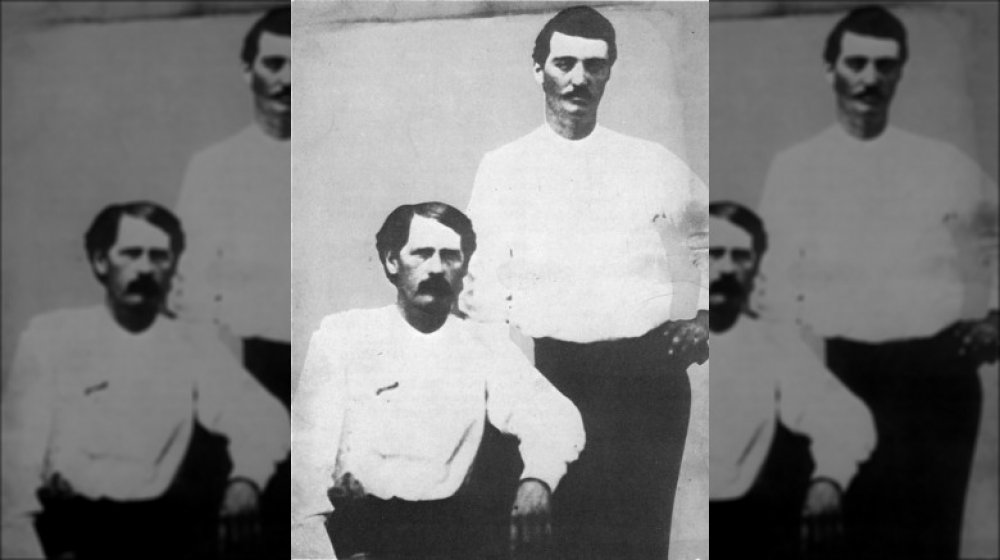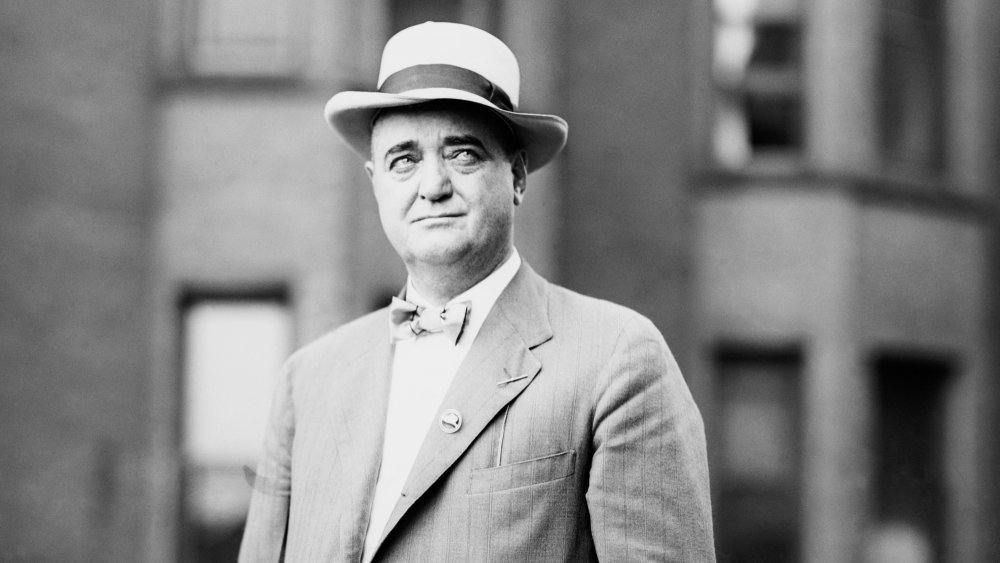Wyatt Earp's Best Friend Wasn't Who You Think It Was
Wyatt Earp leaned toward the quiet side. Usually described as taciturn, not great with jokes; a serious kind of guy. The kind of man who had lots of acquaintances but just a few long-term, true friends. "The real story of the Old West can never be told unless Wyatt Earp tells what he knows, and Wyatt will not talk," said perhaps the oldest of those friends, William Barclay "Bat" Masterson. As True West tells us, Bat was out on the plains with his brother, Ed, working as a buffalo hunter when he first met Wyatt, engaged in the same line of work in 1871. While Wyatt (above, left) was quiet, Bat, five years younger, was gregarious, one of those men you liked instantly; charming, well dressed (including lifts in his boots; he was a little on the short side), but with enough of what we'd call street cred to back up himself or his friends.
He worked as a scout, the aforementioned hunter, gambler, and lawman, along with his brothers, Ed and Jim. He served as a peace officer with Wyatt in Dodge City during the heydays of the cattle drives. Masterson had already killed a man in a gunfight over a woman and been wounded in return, giving him a slight limp for the rest of his life. Like Wyatt, he preferred cold-cock troublemakers before the shooting could start. Bat and Wyatt served on posses together and tamed towns, together and separately.
A man tough enough for Dodge, and tough enough for New York
Wyatt continued to wander the West. Bat ended up back east, a friend of President Theodore Roosevelt, whom he entertained with tales of his own adventures and those of his friends. One of Roosevelt's press aides, Stuart Lake, listened intently and went on to try to get Wyatt to talk, with a mixed book titled Wyatt Earp, Frontier Marshall, published shortly after Wyatt's death. There are those who think a number of Lake's tales of Wyatt's adventures really happened to his friend Bat. Artistic license. Maybe.
Bat became a columnist, sportswriter, and expert on professional boxing for the New York Morning Telegraph newspaper, according to History. He even scored an endorsement deal, for Savage Automatic Pistols, says Robert K. DeArment's Gunfighter in Gotham. He also wrote a series of magazine profiles of some of his frontier friends in 1907. Doc Holliday: "Holliday had a mean disposition and an ungovernable temper, and under the influence of liquor was a most dangerous man." Wyatt Earp: "personal fear doesn't enter into the equation ... I believe he values his own opinion of himself more than that of others...."
Wyatt died at home, not in a gunfight. Bat had a similar, quiet end: In 1921 he was found slumped over his typewriter at his news desk, where he'd just finished writing his column, taken by a heart attack at the age of 67. He was survived only by his widow, Emma, and his friend, Wyatt Earp.

